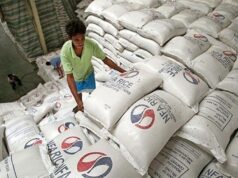
THE International Rice Research Institute (IRRI) said it will test carbon-reduction schemes in rice farming in partnership with Germany’s BASF AG.
“The joint effort is planned for multiple rice seasons in the Philippines and will take place in Laguna, where both organizations maintain research centers for rice,” IRRI said in a statement.
IRRI said the partnership plans to explore climate-smart farming techniques like direct-seeded rice varieties, nitrogen stabilizers, nutrient and residue management, novel chemistry tailor-made for rice farmers, and water-saving technologies such as alternate wetting and drying management.
“This collaboration presents immense opportunities for methane and other greenhouse gas (GHG) reductions to create value for farmers and help improve the production of rice in Asia, and the Philippines in particular,” IRRI Sustainable Impact Department Head and Research Director Bas Bouman said.
BASF will use its AgBalance technology to assess the emission intensity of rice farming.— Adrian H. Halili
“Both BASF and IRRI aim to further develop and apply models for improving scientific understanding of climate mitigation and adaptation options for rice in the Philippines and other rice growing areas in Asia,” it said.
IRRI said that the partnership ultimately aims to support farmers in growing rice varieties that emit less carbon.
“We need to evaluate how new technologies and tools can come together for more climate-smart agricultural practices,” Marko Grozdanovic, Senior Vice President Global Marketing at BASF Agricultural Solutions, said.
IRRI said that about 10% of GHG emissions are from agriculture, much of it from continuously flooded rice fields.
“It is estimated that rice production has the greatest potential within agricultural crop production to reduce GHG emissions,” it added. — Adrian H. Halili



